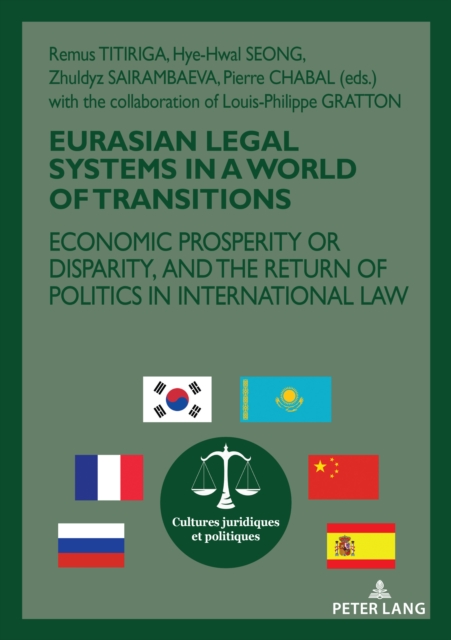
Eurasian Legal Systems in a World in Transition : Economic prosperity or disparity, and the return of politics in international law PDF
Edited by Titiriga Remus Titiriga, Seong Hye Hwal Seong, Saraimbayeva Zhuldyz Saraimbayeva, Chabal Pierre Chabal
Description
Eurasia is neither a juxtaposition of sub-regions - Central Asia, West Europe, East Asia - nor a single, coherent legal system. It mixes sui generis evolutions and mutual influences of its constituent systems. The period of Eurasian countries going their own, national(ist) way in building a legal system (Europe before 1950, Central Asia under Soviet rule, East Asia in colonialisms) has yielded to one when no 'universal' system applies. Regional mechanisms are mutually inspired, for instance the EU and the EAEU; or the OSCE and the CICA.
Chapters are by scholars based in Korea, Kazakhstan, France, China, Russia and Spain. Each sub-region is analysed through a ‘main’ reference (Kazakhstan, France, Korea) and a ‘complementary model’ (Russia, China, Spain), within the context of institutional region-building.C
Two factors accelerate change in Eurasian legal systems: national/regional experiences and evolutions influence each other; the world context (crises, sanctions, wars, trade diplomacy…) push even further : no country (or region) can in isolation devise legal solutions to these challenges.
Information
-
Download - Immediately Available
- Format:PDF
- Publisher:Peter Lang AG, Internationaler Verlag der Wissensc
- Publication Date:19/02/2024
- Category:
- ISBN:9783034348232
Information
-
Download - Immediately Available
- Format:PDF
- Publisher:Peter Lang AG, Internationaler Verlag der Wissensc
- Publication Date:19/02/2024
- Category:
- ISBN:9783034348232






